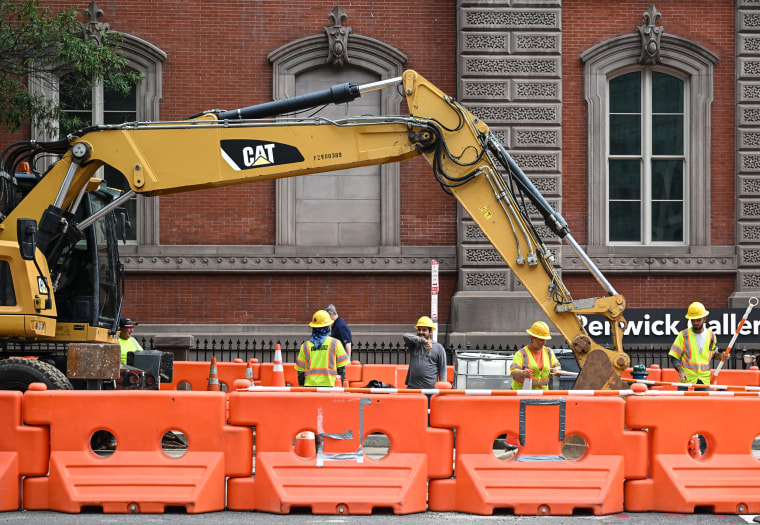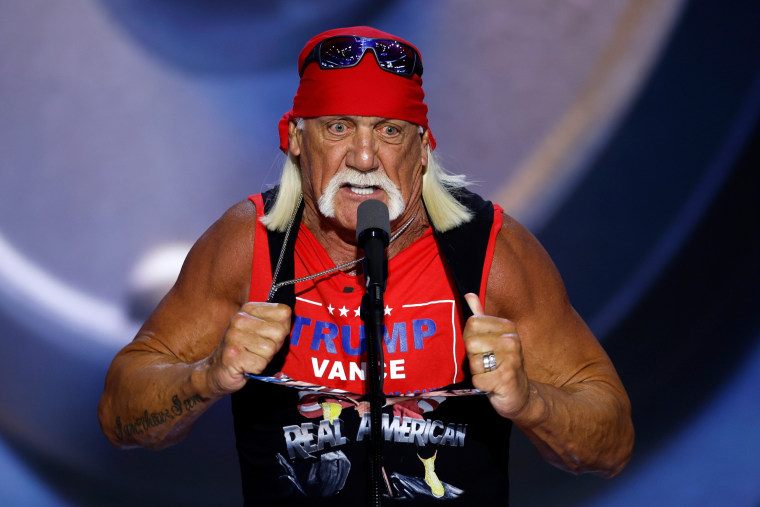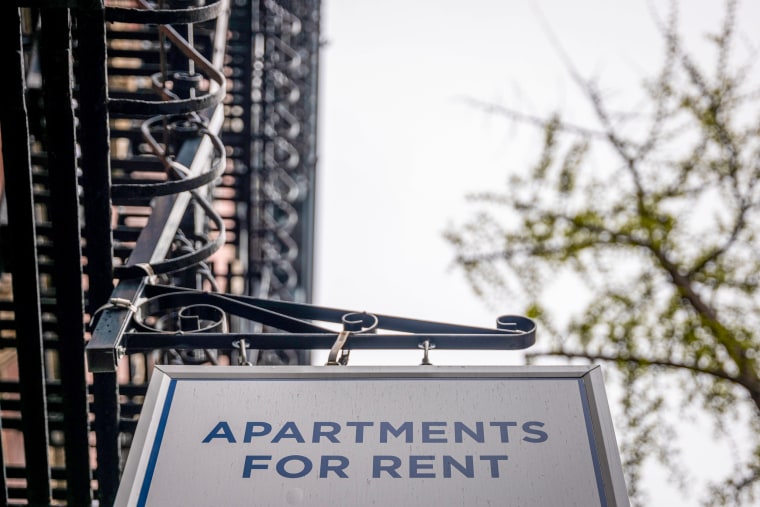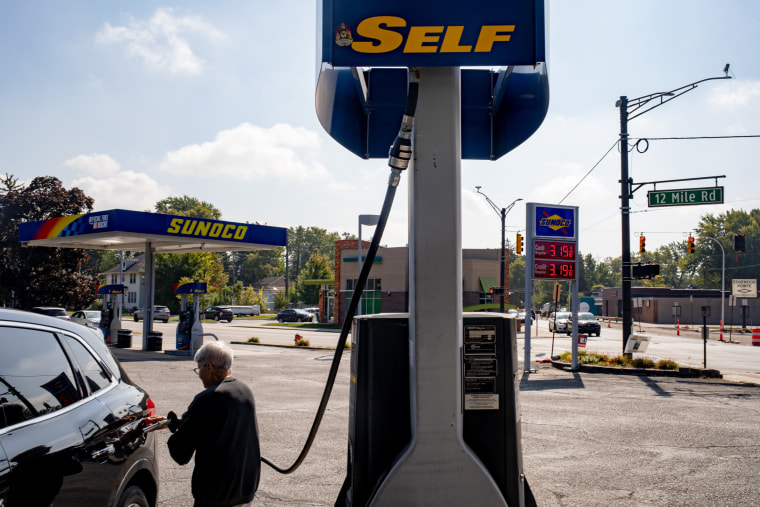For David Tasker, an 18-year-old construction worker in Pennsylvania, his top financial priorities are having enough money for gas, dining out and spending on his girlfriend while living at home with his parents.
But he worries about the rising prices he’s seen during his teen years as he’s emerged into an economy experiencing decades-high inflation. For his first election, he said he will be voting for former President Donald Trump with those higher costs and concerns about the wider economy in mind.
“Trump can run America like a business and Kamala would run it as a classroom,” Tasker said. “Trump would care about how Americans can get the most money, how we can care for the most people, and keep America first.”
Young men like Tasker, seen as a solidly Democratic group less than two decades ago, have been shifting further to the right politically as their economic outlook has been on a downward trajectory, especially among those without a college degree, said pollsters and social scientists. While the economy has been a top issue for many voters, it’s been a particularly salient one for young men and one tied into their wider cultural ideals about their place in society and wanting to be a provider for their families.
“The economic and employment picture for younger men without college degrees is significantly worse than previous generations,” said Dan Cox, director of the Survey Center on American Life at the American Enterprise Institute, whose research has focused on young adults. “These sort of traditional norms around masculinity and what it means to be a man and a husband are wrapped up in economic success, and that makes it really, really challenging when their economic outlook is not as bright.”
The economic anxieties among young men are both current and generational. Those without a college degree are making less money, when adjusted for inflation, than the generations before them and are less likely to be working full time, according to data from the Pew Research Institute.

At the same time, women have been making gains. A larger share of women ages 25 to 34 work full time — 67% today compared to 55% in 1993. While those women are still making less than men — 92 cents for every dollar earned by men — the gap has been shrinking, according to Pew data. Almost half of young women have at least a bachelor’s degree compared to 37% of young men.
“This is just a huge economic fact that lies behind a lot of this sense of cultural dislocation among men, this sense of not really knowing whether you are going to be needed, or feeling like you’re failing against the standard that was set 50 years ago about the position of men and women in the labor market,” said Richard Reeves, president of the American Institute for Boys and Men, which he founded to study the unique problems males face.
Reeves said his research indicates that a sense of economic and social dislocation could also be contributing to higher suicide rates among young men and wider substance abuse.
“It’s a very, very difficult and painful transition right now between some of the cultural expectations we have about the role of men and the economic reality on the ground,” he said.
‘A sign of strength’
That diverging economic picture for younger men and women is likely contributing to a growing political divide, researchers said. Young men have been shifting away from the Democratic Party, with 33% now identifying as Democrats compared to 42% in 2020, according to polling of 18- to 29-year-olds by the Harvard Institute of Politics.
While the poll found Vice President Kamala Harris is the preferred candidate among the majority of both young men and women and has been gaining support with both groups, the shift in support for the Democratic nominee among younger women has eclipsed that of men. Among likely female voters 18 to 29 years old, 70% said they plan to vote for Harris, while 53% of likely male voters in that age group preferred Harris. That compares to 2008, when Barack Obama won the votes of 66% of young men.
Trump has been working to leverage that dissatisfaction by trying to pin the blame for high inflation on the policies of the past four years under President Joe Biden and Harris. He’s also pledged to bring back manufacturing jobs, which could disproportionately benefit working-class men, by placing up to a 20% tariff on imports. Economists have said Such tariffs would trigger widespread inflation and supply chain disruptions.
“There’s a perception that when Trump was president, the economy was doing better. I could pay for rent, things were generally better in terms of my financial bottom line,” said Melissa Deckman, CEO of the research firm PRRI, who wrote a book on the politics of Gen Z. “For young men, that’s maybe more appealing than it is for young women, because while young women vote based on the economy, they’re also voting based on social issues.”

The Trump campaign has also been trying to appeal to ideals of masculinity with everything from Hulk Hogan ripping off his shirt at the Republican National Convention to targeted messaging around areas popular with young men, like Zyn nicotine pouches and cryptocurrency.
Obama took to the campaign trail this week in support of Harris, where he pushed back on some of those efforts by Trump.
“I’m sorry, gentlemen, I’ve noticed this, especially with some men who seem to think some of Trump’s behavior — the bullying and the putting people down — is a sign of strength,” Obama said at a rally in Pittsburgh. “And I am here to tell you: That is not what real strength is. “It never has been.”
Childless and still living at home
How the day-to-day economy looks to many young men is starkly different than it does for other demographic groups, as they are less likely to feel the effects of some of the top issues on the campaign trail, like the costs of prescription drugs , child care or mortgage interest rates. Instead, a higher share of their income goes to rent, dining out and entertainment, along with student loan debt.
One of the biggest financial pressure points for young men has been higher rentswhich are up around 20% since 2020. About two-thirds of young adults said they spend more than 30% of their monthly income on housing, and about a quarter said more than half of their income goes to housing, according to data from Bank of America.
That has contributed to about 30% of those ages 18 to 25 continuing to live at home with a parent, according to a survey by Intuit Credit Karma. Young men are more likely to be financially dependent on their parents compared to young women, with 74% of women describing themselves as mostly financially independent compared to 62% of young men, according to a Pew survey.
That difficult financial situation has this generation of young adults putting off major life events, economists said. Among adults ages 18 to 24, only 7% were married in 2023, compared with 18% three decades earlier. They are also putting off having children, with 33% of young adults 18 to 29 having at least one child in the household compared to 59% in 1993, according to a Pew survey.

The Biden administration has enacted policies that could disproportionately benefit young working-class men, like spending more than $1 trillion on building new infrastructure and incentives that have spurred a wave of investments in electric vehicle and semiconductor manufacturing. Harris has proposed a number of initiatives that could also improve the lives of these young men, like seed money for startup businesses and assistance with a down payment on a home, along with wider access to mental health care.
But those initiatives could be tempered by a sentiment researchers have heard among young male voters that they don’t feel seen or welcome on the left as Democrats have increasingly emphasized programs to help other groups, like women or members of the LGBTQ community.
“What I see and hear is that they certainly don’t feel that welcome on the left,” Reeves said. “I think it’s symptomatic of a failure on the part of the left and Democrats, more specifically, to acknowledge and address the issues of boys and men and make them feel represented and seen and heard on their side of the aisle.”
‘More of a business professional’
In an NBC News focus group of young men leaning toward Trump, nearly all of the participants cited the economy and inflation as their top issue.
“You look at what our parents were able to buy for $10,000 back in the day,” said Derek, a focus group participant from Wisconsin who is leaning toward Trump. “I just went through trying to buy a house two years ago, and the struggles that you came through. You’ve got to be making $150,000 just to get your standard three-bed, two-bath house today.”
At a Trump rally in Pennsylvania, Sam Lilly, an 18-year-old who is still in high school, said he is planning to vote for Trump in his first election as an eligible voter. He said one of the biggest financial concerns for him is the price of gas. Gas prices have been averaging $3.34 a gallon, down from their high of $5.00 a gallon in June 2022 and $3.96 a year ago. Prior to the pandemic, gas was averaging around $2.60 a gallon.
“Gas is so expensive, it’s ridiculous. I drive a truck, so I only get 16 miles per gallon,” said Lilly, who currently works at a restaurant and who would ultimately like to work in welding or as an auto mechanic. “I’ve got to drive from my house to a school that’s 20 minutes away to another school that’s 20 minutes away to work that’s 30 from that school. So I’m wasting a lot of gas.”

He said he thinks Trump would handle the economy better than Harris.
“I think she goes and uses her emotions more than her brain,” said Lilly. “I like how Trump is more of a business professional about it, and uses his brain to think and take on issues.”
While Lilly said he’s committed to voting, turnout among young men is typically relatively low and researchers said they see a lack of enthusiasm for both parties among the group — meaning whom they vote for or whether they vote at all is up for grabs.
“It’s not a done deal,” said Cox. “I think a lot of these guys will probably end up staying home. Some of them may vote for Harris grudgingly. I think Trump will do better with young men than among young women — the gap will be pretty significant in terms of voter support — but I don’t think Trump’s going to win an overwhelming majority. I think that’s unlikely.”

